|
In the data-driven world we live in today, the ability to extract insights from vast and complex datasets is paramount for organisations to make informed decisions, drive innovation, and gain a competitive edge. With the exponential growth of digital information, estimated to reach a staggering 44 zettabytes (roughly a billion terabytes) in 2020 according to the World Economic Forum, businesses are grappling with the challenge of navigating this vast amount of data. This is where powerful analytics platforms like Oracle Analytics Cloud (OAC) come into play, harnessing the transformative capabilities of artificial intelligence (AI) and machine learning (ML). Authoritative Industry Projections Highlighting Rapid AI Software Growth and Enterprise Adoption According to a number of the leading global research and advisory firms, there is a shared opinion that forecasts the rapid growth and widespread adoption of AI software, solutions, and generative AI capabilities across enterprises globally, driven by the potential benefits and competitive advantages offered by these technologies. 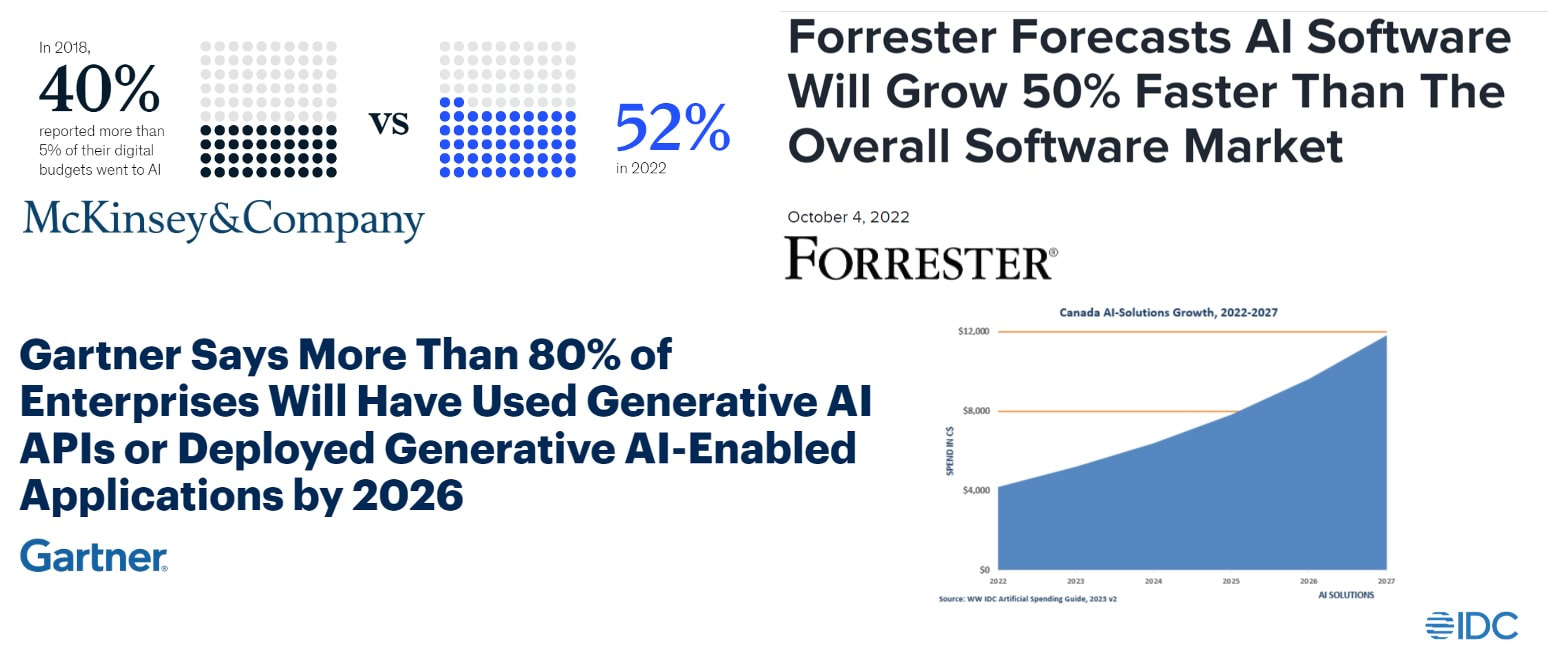 Researchers AI adoption forecasts Researchers AI adoption forecasts AI is rapidly becoming a critical technology that organisations across industries cannot afford to ignore. Those that proactively embrace AI, build the required capabilities, and integrate it into their strategies and operations will be better positioned to navigate the disruptions and capitalise on the opportunities presented by this transformative technology. Democratising Machine Learning with Oracle Analytics Cloud ‘s AI Integration At the heart of Oracle Analytics Cloud's capabilities lies the integration of AI and machine learning technologies. AI, which enables computers and digital devices to simulate human-like intelligence by learning, reasoning, and making decisions, has revolutionised various industries, from healthcare to finance. Machine learning, a subset of Artificial Intelligence is a technique that allows systems to automatically learn and improve from experience without being explicitly programmed. Oracle Analytics Cloud leverages machine learning capabilities to empower users with a user-friendly interface for building, training, and deploying predictive models. This democratisation of machine learning empowers even non-technical users to harness the power of data-driven insights for decision-making. Key Machine Learning Features in OAC
Integrated Machine Learning Algorithms Oracle Analytics offers a set of built-in machine learning (ML) algorithms that you can leverage for various data analysis tasks. These algorithms are designed to be user-friendly and accessible through a drag-and-drop interface, eliminating the need for coding knowledge. The following algorithms are available:
You can find out more about the various OCI AI integrations currently available in Oracle Analytics Cloud.
In addition to these user-friendly features, OAC offers access to a wide range of built-in machine learning algorithms, catering to diverse analytical needs and user personas, from casual end-users to data scientists.
Benefits of AI-Powered Analytics with OAC Integrating AI and machine learning capabilities into the analytics workflow offers numerous benefits for organisations:
The Evolving Role of AI in Analytics As AI and Machine Learning technologies continue to advance, their role in the analytics domain is evolving. Traditionally, the focus has been on automating repetitive tasks and streamlining data preparation processes. However, the true power of AI lies in its ability to unlock predictive capabilities, enabling organisations to go beyond descriptive and diagnostic analytics. With AI-powered analytics platforms like OAC, businesses can leverage predictive recommendations and future trend forecasts, gaining a competitive edge by anticipating market shifts, customer preferences, and potential risks or opportunities. Upcoming Oracle Analytics Generative AI Features Oracle is at the forefront of integrating cutting-edge AI capabilities into its analytics platform. According to a forward looking statement from James Richardson's blog, here are two highly anticipated features that we might see incorporated into Oracle Analytics:
The Future of AI in Oracle Analytics Oracle's roadmap for AI integration in its analytics platform is ambitious and forward-thinking. While the first AI integrations will be "behind the scenes" to improve productivity, the ultimate goal is to augment human intelligence with AI-powered insights. Enhancements to features like Auto Insights and the AI Assistant are on the horizon, leveraging the capabilities of generative AI to provide more comprehensive and contextual insights. As AI continues to evolve, its role in analytics will shift from mere automation to true augmentation, empowering users with AI-driven recommendations, forecasts, and actionable insights. As the volume and complexity of data continue to grow exponentially, embracing AI-enabled analytics platforms like Oracle Analytics Cloud will be crucial for organisations seeking to stay competitive and data-driven. By harnessing the power of AI and machine learning, businesses can uncover actionable insights, automate tasks, and make informed decisions that drive innovation, enhance customer experiences, and ultimately fuel success in the ever-changing digital landscape.
2 Comments
Ololade Kassim
4/4/2024 05:28:33
Hello,
Reply
Joel
4/4/2024 12:13:10
Start with the LiveLabs - https://apexapps.oracle.com/pls/apex/f?p=133:100:103505349636580::::SEARCH:analytics
Reply
Your comment will be posted after it is approved.
Leave a Reply. |
AuthorA bit about me. I am an Oracle ACE Pro, Oracle Cloud Infrastructure 2023 Enterprise Analytics Professional, Oracle Cloud Fusion Analytics Warehouse 2023 Certified Implementation Professional, Oracle Cloud Platform Enterprise Analytics 2022 Certified Professional, Oracle Cloud Platform Enterprise Analytics 2019 Certified Associate and a certified OBIEE 11g implementation specialist. Archives
May 2024
Categories |


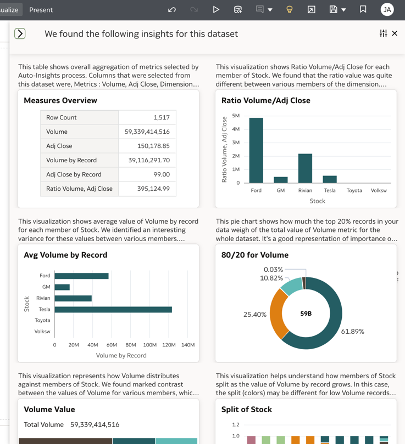
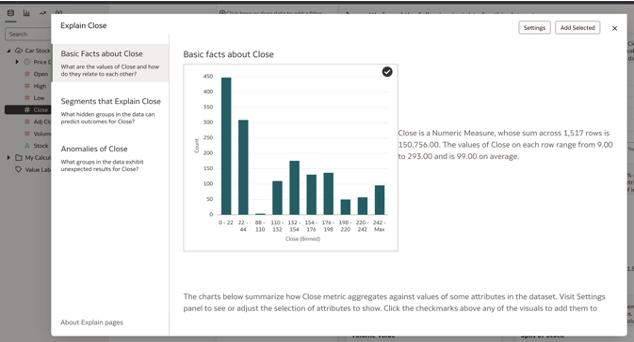
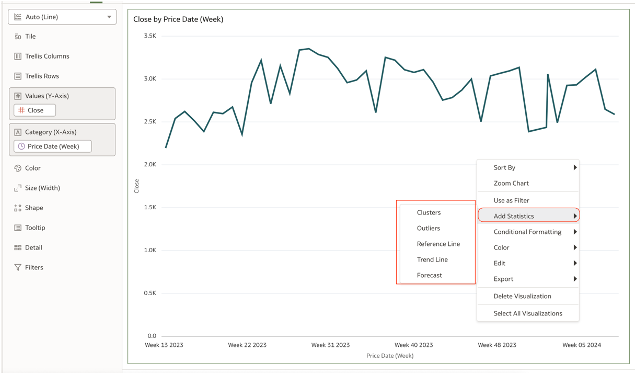
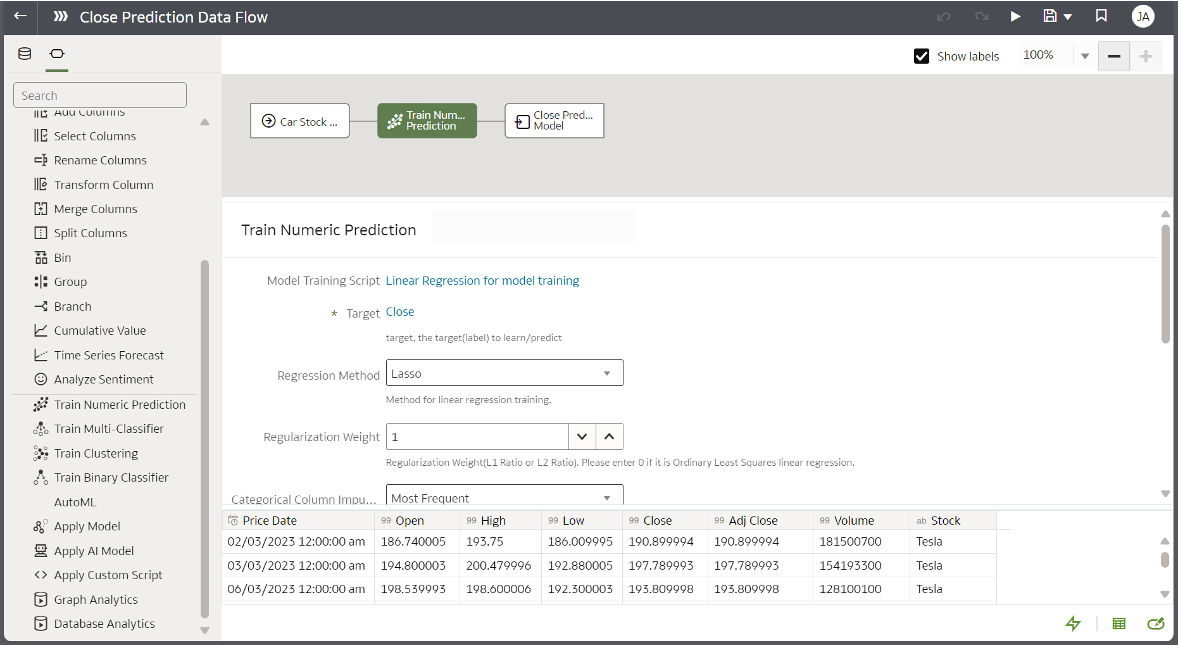
 RSS Feed
RSS Feed

